The W Suite | Empathic and authentic leadership is important: Yash Samat
Diversity in the workforce has become a necessity today, and more so in the leadership positions. It can’t be denied that women bring a high level of creativity and empathy while solving problems and handling crises. Women leaders bring to the table a different level of dexterity.
Adgully’s ‘The W-Suite’ series features interactions with influential women leaders in India, who share some deep insights on what being a woman leader means in India’s business landscape, the mantras to succeed, achieving work-life balance, pay parity and much more.
Yashaswini Samat, Chairman and Managing Director, Grey Group India, is the first woman to head the group in India. She had joined Grey in 1994 as an Account Director and has continued and grown with the group. In the course of her career, Samat has worked in multiple markets, driving integrated strategies and communication plans for big brands as well as a range of P&G brands. She has led and mentored large teams across different geographies (Europe, Asia and North America), diverse disciplines and cultures. Before moving back to Asia, Samat was the Global Brand Agency Leader for Pantene based out of New York.
Samat has also been Managing Director & Executive Vice President, P&G - Asia Pacific Middle East and Africa, Greater China, and has been leading Grey’s biggest client, P&G, for the AMEA region.
She is currently based in Mumbai and works closely with Nirvik Singh, Chairman & CEO, Grey Group Asia Pacific, Middle East and Africa, to expand Grey’s roadmap of collaborative and innovative solutions for clients’ business problems as well as continue to build upon the Grey brand in India.
Being Grey’s first woman boss, your role and responsibility has drastically changed. How do you maintain a balance between career goals and family responsibilities?
I think I got lucky. I believe it’s important to have the right support system. My husband and I have been equal partners throughout our lives. I also think my husband is good with our son than I am ever since his childhood. Moreover, the support from my parents and in-laws, and having really good house helps around for the longest time have all made a big difference.
Today, I am at a different life stage. My son is 23 and he is working, my husband has his own career and job so do. The major change at this stage is instead of looking after your children, you are looking after your parents. Now at this stage pursuing a career is a bit easy. Once someone had said that women can have it all, but not at the same time. So, you have to do it at different life stages.
How would you define today’s woman leader?
As a leader, I believe one’s leadership style must be authentic and true to oneself, firstly. Yet there are other things that one must learn from other people; things that other people have failed and succeeded. Moreover, as a leader there are a lot of things to figure out, like keeping up with what’s going around in the industry and balancing it out with one’s business, future changes that are foreseen, hard work, being business driven, etc. I think for me what has really been important is empathic and authentic leadership. I have been in some kind of a leadership role for a long time and what has worked for me is that I have always been honest and true to what I believe in and what’s right for the business of course, bringing a balance between the two and hearing different points of view, figuring out the right solutions. Well, that’s my business approach.
Nowadays, there are several issues related to gender diversity. Once you mentioned a term ‘Femvertising’. Could throw some light on this term?
I have to give credit to Dove as they highlighted the social tensions that women come across globally in their lives and how to create a brand purpose out of it for products that women use a lot – whether it’s the social structure or place in the family, working, home maker, beauty, etc. I think this was 15-20 years ago. I also think the consumers are really smart and they know when it is being used in a self-serving way or in a way that either the brand has no right to play there or that it is just being superficial and manipulative about it. Some brands have really done it well. I think in our business it’s important to catch these social change trends and act when it’s just about to peak.
I also think the role of communication at one level is using social issues to tell their brand purpose and story, but at another level impacting that issue in good way towards a right direction is a very interesting space. You just have to make sure you are true and authentic and at the right time.
The term ‘Femverting’ stands for feministic advertising. So many people are doing it and a lot of it is very packed stuff. At times it just looks good because you are following the trend and sometimes it also goes on a wrong path. There is also a term called ‘Goodvertising’, which is for good. For example, in the Pepsi ad their intent was to ride on something that was supposed to be good for you, but people eventually realised it was fake and terrible. More importantly, as a brand it is important to figure out what the purpose is and what piece is important to you and do a lot more with it. For instance, on Mother’s Day, Father’s Day, etc., if flowers and chocolates are supposed to be sold, then that really is different. But if you want to do all deep emotional stuff, then have something that you can sustain for a longer period. I think if you are selling – well, that’s what our job is all about – it has to be far more meaningful and have a far greater impact, otherwise people will see right through it.
We have seen advertising agency models. Do you think we need more women in our industry playing leadership roles?
It’s just unfair and a pity. There are so many women at the younger level, but when they reach the age between 30 and 40 years, there is a drop. The most productive work age coincides with the biological clock. The good part is that women have a choice these days, if they want to look after their household or baby, they have a choice and can do it. A lot of it in this age is expected, one reason being our industry is very tough on timings and balancing work and home gets very difficult. The other reasons for their leaving could also be the money not being worth it. I believe any industry would do better with more diversity at the top. I strongly feel women must not leave their jobs for all the wrong reasons. Specially, I see it in advertising, there are so many at the beginning and mid-levels, but zero at the top level, it’s ridiculous. On the other hand, I feel media agencies are a bit better. It’s a bit of a responsibility for women as well as they find it easy to just leave their jobs, especially if the financial need is not high and husband is doing well. The grey areas are social compulsion, personal choices, etc. But we need more women at the top for sure.
How acute is the gender pay gap issue in India today? What needs to be done to address this in an effective manner?
Honestly, I have to say I haven’t felt it personally throughout my life at Grey. Today, when I see the salary spreadsheets I don’t think these choices are made deliberately. But I think what seems to happen when a man comes across highly ambitious to people, the growth rate is faster as compared to women. Some of these biases are so endemic and I am sure people don’t even realise that they have done it. Hence, it’s a tough one. If you see the salary spreadsheets, everybody’s salary is what it has to be for good reasons. It’s on paper, there is evaluation and everything is done. I think I have to dig one level deeper, maybe peel the onion one level more than usual, because it’s more about how we evaluate and what we value.
When a person shows aggression and the ability to succeed in his/her career from a company head point of view, we would choose that person for the main goal versus a person who is milder and who wants to take the team together. Nothing wrong with both, but it’s about making choices at different levels. I may also fall into the trap. But again what needs a deeper level of scrutiny is what is the value that different personalities get. Hence, it’s a sensitive issue. Nevertheless, people have already started thinking about it now; but the question is what can we deliberately do and plan to address it? We definitely must think about it as a whole industry; it’s a combination of retaining women and how do we look at the talent core. So far this has been the question and nobody has been able to answer this.
What more do you think Indian companies need to do in order to encourage and groom women leaders?
I think if we can start from a point of being very sensitive to the age gap of 30-40 years of age. For instance, what can we do to retain the very smart and ambitious career women and maybe help them figure out a slightly alternative career path for a few years or help them figure out all these aspects in a slightly different way. I think big companies are already thinking that way. In my case, I was lucky and it happened by chance, when my husband was moving out of the country and when I wanted to go with him and continue working Grey made it possible for me for 10 years even though my career was at a slow phase. When we came back home and after our son was grown up, I went to New York alone. But I don’t think Grey had a plan that way for me, it just happened by chance. Companies need to start thinking deliberately about who their star performers are – both men and women – and what it will take to keep them. Part of it is money and growth, but these are the softer aspects.
Over a span of 25 years, you have worked on the P&G business across the globe. Could you highlight a few challenges that shaped you and made a difference as a professional in this long journey?
I don’t know about challenges, but P&G is absolutely a great client. I have enjoyed most of my career with them, the people I have met there, a lot of them have become friends over the years and I think I have really learnt my business of communication, leadership and a lot of things from this client as I have worked across geographies. I think everyone is figuring out in this dynamic, rapidly changing, disruptive world – how do large companies keep what is working for them, but at the same time also find a way to change, and we are also learning with them and it’s tough. These are the big challenges and these become the norm of working because the world is going to keep changing. So, these are the things that I have learnt from P&G as we have travelled together in this journey and further understand the change and are evolving with it while adhering to certain principles that drive the business. Twenty years ago the challenge was more about moving across countries, learning new cultures, meeting new people, etc.
What is your advice to aspiring women out there who want to make a difference in their careers?
I think more and more women are getting educated than men and I feel women must make the most of it. They have a choice, so they must use it wisely and not go by the societal norms. Secondly, I feel women should not over-think it. They must take it one step at a time.


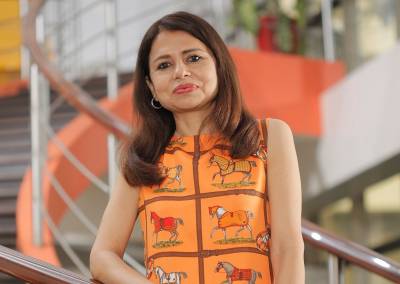

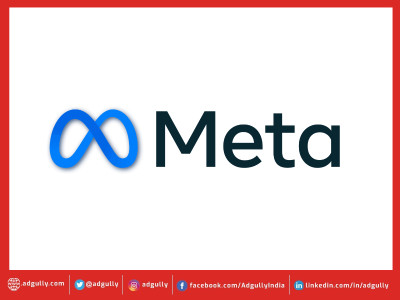
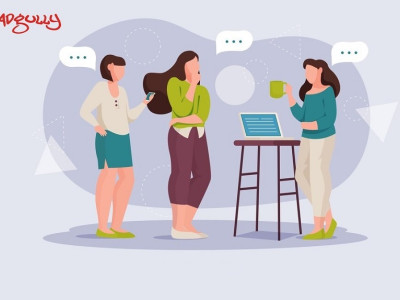
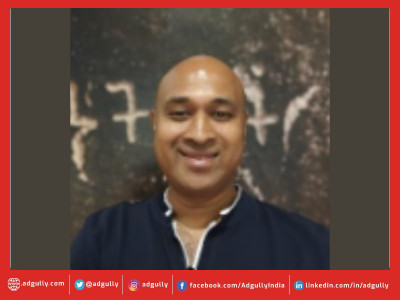

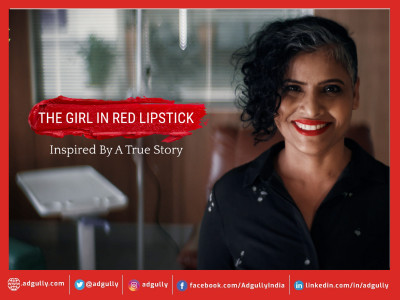
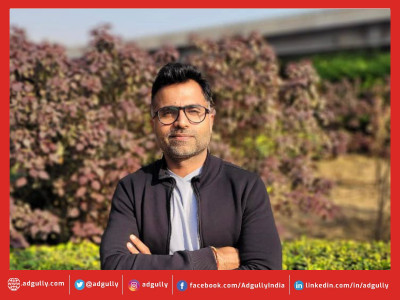
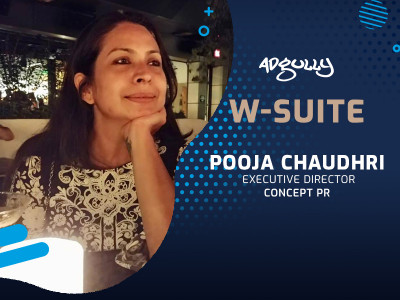
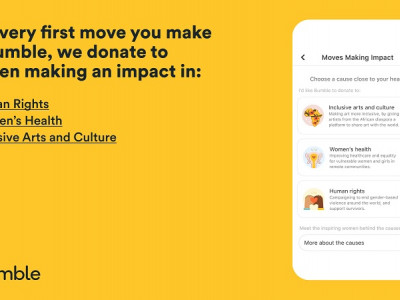

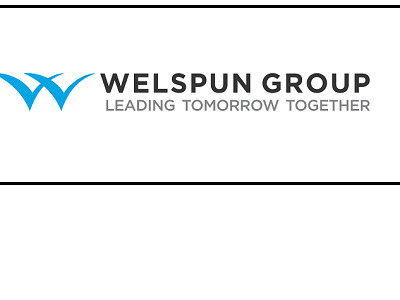


Share
Facebook
YouTube
Tweet
Twitter
LinkedIn